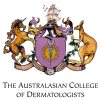After the age of 65, your lifestyle will play an important role in your quality of life. Your ability to live independently and perform your daily tasks is very dependent on how much muscle strength you have.
In addition to quality of life, having healthy muscles affects the heart health, mental health, immune system and bone health. Muscle loss tends to progressively decrease from the age of 45 years of age. The three main aspects to focus on when building strong muscles is eating a healthy balanced diet with adequate protein and calcium containing foods, muscle strengthening exercises and exposure to the sun which allows for Vitamin D absorption.
Protein, calcium and Vitamin D are the three main nutrients we focus on when it comes to building muscle.
Calcium
In a day you would require 3-4 serves of dairy foods to meet the recommended calcium requirement. One serve is made up of one glass of milk, one glass of non-dairy calcium fortified milk, 1 tub of yogurt and 1 slice of cheese. Other sources of calcium include sardines, tofu or bean curd, kale and almonds.
Protein
In a day we require about 2-3 servings a day. This can come from sources such as lean meat, legumes, tofu and eggs. One serving of protein is two large eggs/a palm size of meat (90-100g), small can of fish (95g) or 1 cup cooked or canned legumes.
Physical activity
Regular strengthening exercises can help muscle. It is especially important to work on your arms, legs, abdomen and back. It can be either in the gym or at home. The recommended amount of exercise time is either 30 minutes twice a week or 5-10 minute bouts on most days. There are activities which can help to build muscle such as carrying shopping bags, gardening, vacuuming or climbing stairs. Including protein rich foods enhances the benefits gained from muscle strengthening exercises. In addition to muscle building exercises, it is also important to include balance building exercises such as yoga or tai chi. While having a proper exercise routine is important, it is equally important to be physically active on a daily basis. This can involve doing household chores everyday or joining a sports club.
Contact us for results focused on nutritional advice
This article was written by our dietitian and nutritionist Juhi Bhambhaney. If you have any questions regarding health and nutrition, make an appointment with one of our dietitians. We‘ll provide you with a simple and effective routine targeted to your concerns. Contact us today.
The post Healthy living after the age of 65 appeared first on ENT Wellbeing Sydney.










